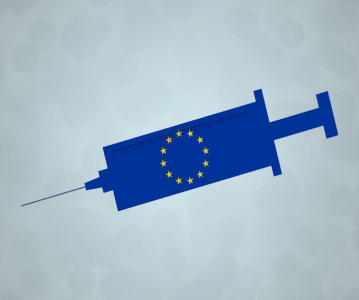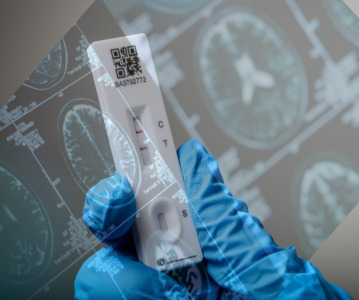Despite major patent expiries, the hematological cancers market will exceed $70 billion by 2022

Although a number of key patent expiries will occur during the forecast period, new drugs will offset this and drive strong growth, says GBI Research.
The market for hematological cancers, which covers leukemia, lymphoma and myeloma, is expected to more than double from $30.7 billion in 2015 to $70.1 billion by 2022, representing a compound annual growth rate of 12.5%, according to business intelligence provider GBI Research.
The company’s latest report — Global Hematological Cancers Market to 2022 – Commercially Successful Targeted Therapies and Large, Innovative Pipeline to Drive Market — states that this strong growth will occur in spite of a number of key patent expirations for drugs including Rituxan, Gleevec and Velcade, as new drugs hit the market and the prevalence of hematological cancers increases.
Yasser Mushtaq, Senior Analyst for GBI Research, says: “The significant revenue lost by targeted drugs such as Gleevec and Velcade will be counteracted by recently approved drugs and pipeline products. Keytruda (pembrolizumab), for example, which is already marketed for metastatic melanoma, is in Phase III development for multiple myeloma and refractory multiple myeloma. It is also in Phase II development for a number of lymphomas and will therefore contribute to market revenue over coming years.
“A number of drugs currently not marketed will also develop into blockbuster drugs, including selinexor, venetoclax, KTEC-19, and polatuzumab vedotin. Venetoclax in particular is expected to be very lucrative, hitting sales of $3.5 billion in 2022, up from an estimated $155.2 million in 2016. It is a selective, orally administered, first-in-class small molecule therapy in development by AbbVie and Roche, and is indicative of a trend in the market towards expensive targeted therapies, including monoclonal antibodies (mAbs).”
As the use of targeted therapies continues to generate revenue above that of non-specific chemotherapy classes of treatment, key companies investing in the hematological cancers pipeline and targeted therapies will drive the market substantially, according to GBI Research.
Mushtaq continues: “The major market players, including Celgene, Roche, AbbVie, Novartis and Johnson & Johnson, are expected to maintain their strong positions. Of these companies, AbbVie will display the strongest growth, driven by its acquisition of Pharmacyclics, which was already a strong performer in this disease cluster.”
Related News
-
News Patients vs Pharma – who will the Inflation Reduction Act affect the most?
The Inflation Reduction Act brought in by the Biden administration in 2022 aims to give better and more equitable access to healthcare in the USA. However, pharma companies are now concerned about the other potential costs of such legislation. -
News CPHI Podcast Series: What does the changing US Pharma market mean for industry and patients alike?
In this week's episode of the CPHI Podcast Series Lucy Chard, Digital Editor for CPHI Online is joined by James Manser to discuss the political and market changes in the US pharma field. -
News CPHI Barcelona Annual Report illuminates industry trends for 2024
The CPHI Annual Survey comes into it’s 7th year to report on the predicted trends for 2024. Over 250 pharma executives were asked 35 questions, with their answers informing the industry landscape for the next year, spanning all major pharma marke... -
News Which 10 drugs are open to price negotiation with Medicare in the USA?
The Centres for Medicare & Medicaid Services, under the Biden administration in the USA, has released a list of the 10 drugs that will be open to price negotiations as part of the new legislation under the Inflation Reduction Act (IRA). -
News EU Medical Devices Regulation causes unintended disappearances of medical devices for children, doctors state
Doctor groups and associations have appealed to the EU to correct the EU Medical Devices Regulation law that may cause unintended shortages of essential drug and medical devices for children and rare disease patients. -
News 10 Major Drug Approvals So Far in 2023
Last year, 37 novel drugs were approved by the FDA, this was a high number for such a category, and covered many fields including oncology, demonstrating how promising further research is, and how it is only continuing to build. To date, there are alre... -
News Detecting Alzheimer's disease with a simple lateral flow test
A novel rapid diagnostic test for early-stage Alzheimer's disease has been developed using a biomarker binder from Aptamer Group along with technology from Neuro-Bio, the neurodegenerative disease experts. -
News CPHI Podcast Series: outsourcing and manufacturing trends
Listen to the CPHI Podcast Series this June to hear Gil Roth of the PBOA speak with Digital Editor Lucy Chard about the biggest trends and topics to watch in pharma outsourcing and manufacturing at the minute.
Position your company at the heart of the global Pharma industry with a CPHI Online membership
-
Your products and solutions visible to thousands of visitors within the largest Pharma marketplace
-
Generate high-quality, engaged leads for your business, all year round
-
Promote your business as the industry’s thought-leader by hosting your reports, brochures and videos within your profile
-
Your company’s profile boosted at all participating CPHI events
-
An easy-to-use platform with a detailed dashboard showing your leads and performance







